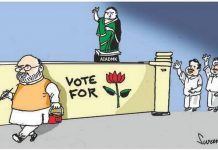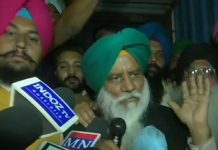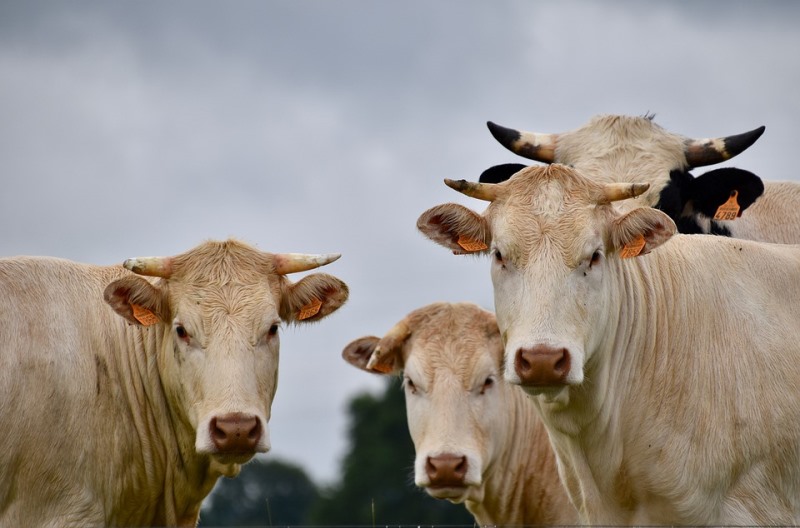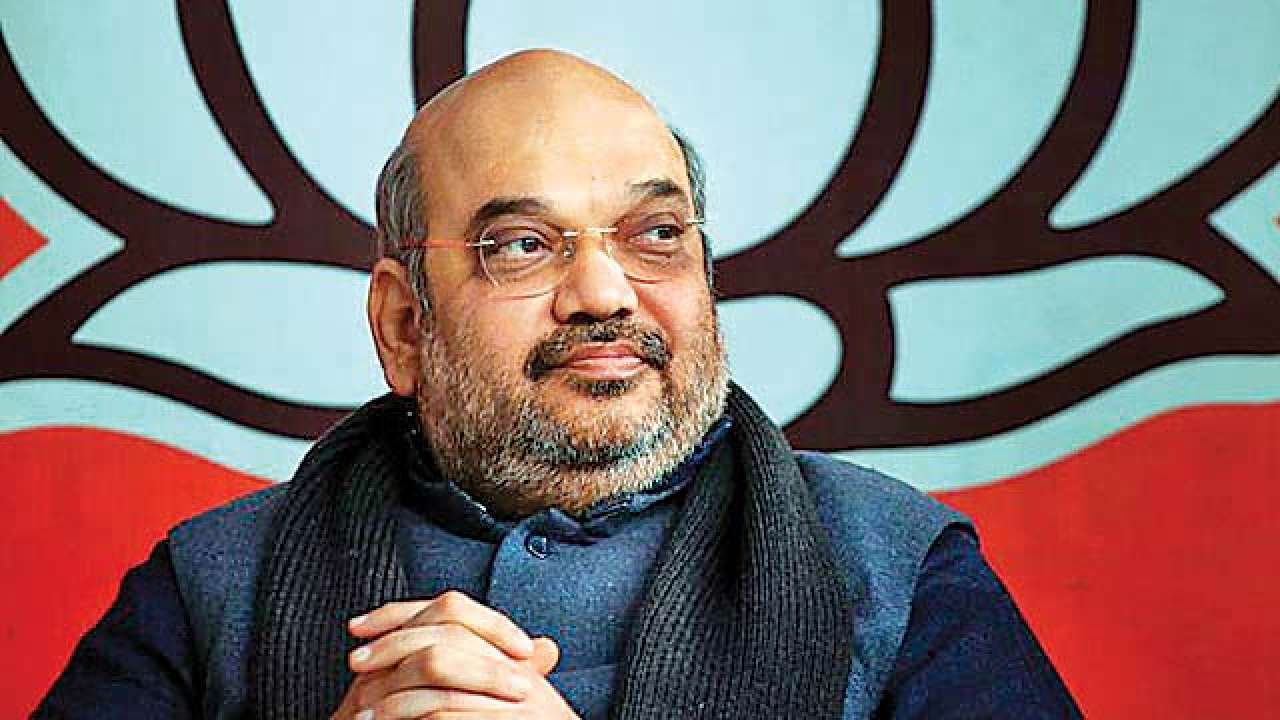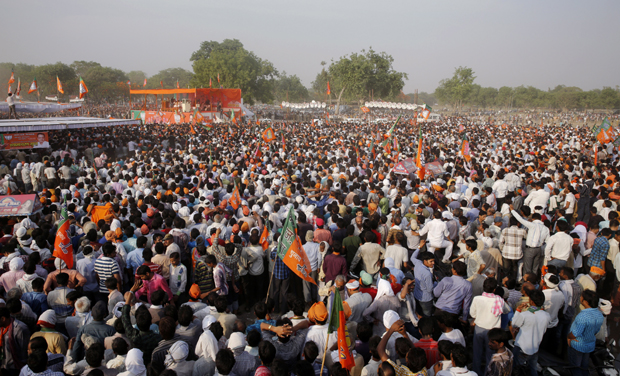
Yes, the elections are coming. But then, as voters, are we really awakened?
Avijit Pathak is a Professor of Sociology at JNU, New Delhi.
 AP Photo / Rajesh Kumar Singh
AP Photo / Rajesh Kumar Singh
[dropcap]A[/dropcap]s the elections are coming, the festivity of democracy, as it is said, would be celebrated all around us. Yes, with political manifestos, rallies, speeches, new promises, attractive posters and banners, the political parties -‘national’ and ‘regional’ – would like to charm and excite us. Furthermore, newspapers and television channels would remind us of the results of all sorts of surveys declaring the ‘mood of the nation’. But then, as voters, do you and I need to educate ourselves? I believe that democracy is not about passive consumption, or merely a routinized act of casting one’s vote; as active/reflexive creators, we have to choose our politics. In a way, the act of exercising the voting right is an act of immense responsibility; it needs the willingness to learn and unlearn.
Learning to say ‘no’ to the cult of narcissism
The first thing we need to learn is to say ‘no’ to the politics of ‘personality cult’, or the politics that projects itself as a ‘product’. In recent times we have been witnessing this trend; and it is dangerous for the spirit of democracy. Take a simple illustration. Today we see Mr. Narendra Modi everywhere; his all-pervading presence makes us feel that the BJP is Mr.Modi; and Mr.Modi is BJP, or even India is Mr.Modi.
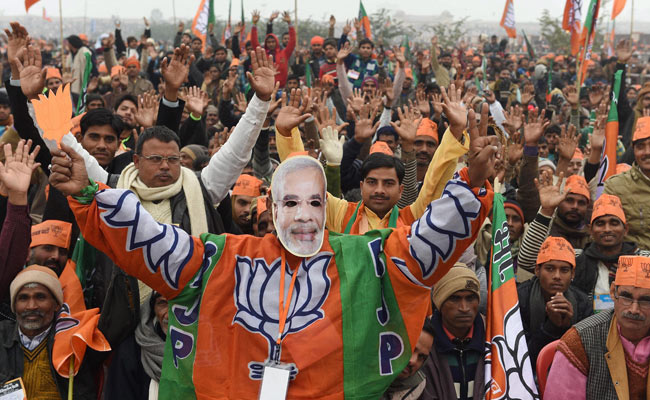
In other words, the spectacle of his ‘personality’ becomes more important than the BJP as an organization, an ideology, a movement. As Mr. Modi is projected as the ‘brand’ to be consumed, we begin to deny the significance of politics as a mode of collective praxis, or a process of shaping the world on the basis of an ideology -a coherent worldview on economics, culture and living. It negates democracy inside the party; and it seeks to transform us into non-reflexive consumers obsessed with ‘brand consciousness’.
Hence, as it is said, we need not think about policies and practices, the dynamics of organization and plurality of voices within the party; instead, we would believe that personalities alone matter, and ‘magical heroes’ are the ones who would salvage us. Hence, these days we have almost forgotten to debate on the substantial issues affecting us; instead, we are asked to choose among different ‘personalities’ or ‘products’: Modi, Mamata, Mayawati, Kejriwal and Rahul Gandhi. In a way, this sort of politics becomes a celebration of narcissism.
As voters, we ought to educate ourselves, and say ‘no’ to this trend. Let us ask what sort of interests these ‘personalities’ represent. Let us ask the consequences of the ideologies and polices they pursue. What do we do with the ‘brand’ Modi (‘masculine’, ‘nationalist’, ‘efficient’), if we find ourselves in a violent society without jobs, without social security, without quality education and and without basic health care? Or for that matter, what do we do if Mayawati becomes a hyper-aggressive ‘Dalit brand’, even though innumerable Dalit’s -dispossessed and landless– continue to remain marginalized and stigmatized?
Hence, as voters, we must pledge that we are not choosing ‘products’ (like Salman Khan blockbuster or Amair Khan sensation); we are not promoting the culture of ‘personality cult’. Instead, we are here to examine and scrutinize ideologies, policies, interests and practices. We do not buy politics; we create politics.
Learning to save ourselves from the glitz of falsehood
As voters, it is also important to educate ourselves, and acquire the spirited intelligence to debunk the propaganda machinery – the entire network of social media and television channels, and understand our real concerns and challenges. And this reflection acquires added importance because we are living at a time when the emotive discourse of religious nationalism causes mass hysteria and heightened psychic turmoil. Under these circumstances, it is not always easy to think clearly, and approach politics with wisdom. Can the militaristic response to Pakistan and terrorist groups in Kashmir help us to combat hunger and unemployment? Or for that matter, would poverty, illiteracy and malnutrition disappear from the country if the Ram temple is constructed at the disputed site of Ayodhya? Can your child get quality education in the village school even if you promote mob lynching and cow vigilantism? The problem is that the dramatic issues filled with inflated emotions- ‘Hindu pride’ and ‘militaristic nationalism’–are continually bombarded on us; and many of us get so carried away that we tend to think that everything else -say, the all-pervading corruption in everyday life, the increasing retreat of the state from health and education, and the huge gap between the privileged few and the rest of society -is insignificant; and even to raise these concerns is ‘anti-national’.
Hence, it is really important to make a distinction between real concerns and politically engineered issues. It is important to see beyond television channels, and raise the issues that really matter to us. In the age of manipulated public opinion, it is becoming increasingly difficult to recover the soul of truth, and negate the glitz of falsehood.
Yes, the festivity is here. But then, we should not forget that elections – in the absence of awakened voters – might promote the ground for a new form of authoritarianism.



